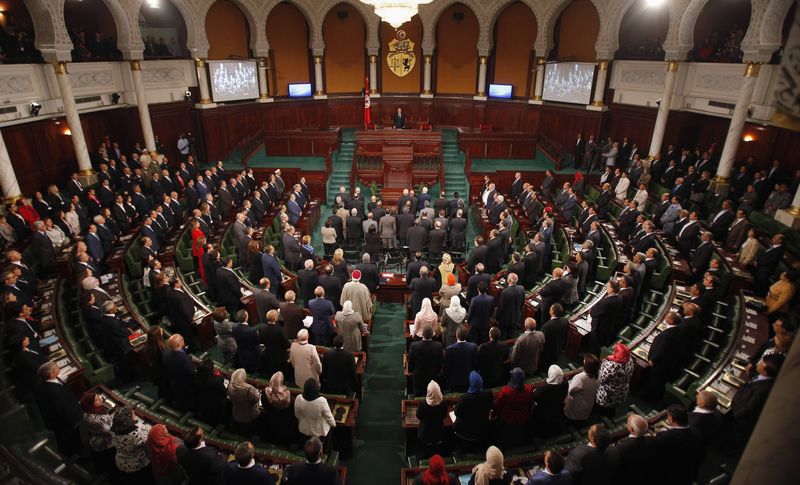TUNIS (Reuters) - Tunisia's first full elected parliament held its opening session on Tuesday with a challenge to implement the democracy its people sought when they marched in the 2011 revolt against autocrat Zine el-Abidine Ben Ali.
The country that saw the first of the Arab Spring revolts chose a temporary national assembly in 2011 to draw up the new constitution approved early this year. The full parliament will sit for the next five years.
That constitution has been hailed as one of the most progressive in the Arab world and an example of Tunisia being a model for transition in a regional in turmoil.
"We have achieved the theoretical side by approving a progressive constitution but today we face the toughest stage, which is how we apply this constitution," Mustapha Ben Jaafar, president of the former transitional assembly, told lawmakers.
The first major item on the agenda is forming a new government. The main secular party Nidaa Tounes wants to create a coalition with smaller parties and name a prime minister.
Nida Tounes won last month's general election with 86 seats in new 217-seat parliament, ahead of the rival Islamist Ennahda party with 69 seats and smaller parties that took the rest.
But government formation will likely wait until after a presidential election runoff this month between incumbent Moncef Marzouki and veteran politician Beji Caid Essebsi, leader of Nida Tounes. The exact date of the runoff was due to be announced by Wednesday at the latest.
The opening session was expected to elect the president of the new parliament, but both Nida Tounes and Ennahda asked for more time for consultations and negotiations.
Sources said Nida Tounes nominated its deputy leader Mohamed Nacer for the post but Ennahda wants its deputy party leader, Abdel Fattah Mourou, to head the next parliament.

Ennahda won Tunisia's first free election in 2011. After three years in government and a political crisis that almost ended Tunisia's transition, Nidaa Tounes - a party led by former Ben Ali officials - overtook it to emerge as the country's leading political force.
(Reporting By Tarek Amara; Editing by Patrick Markey and Tom Heneghan)